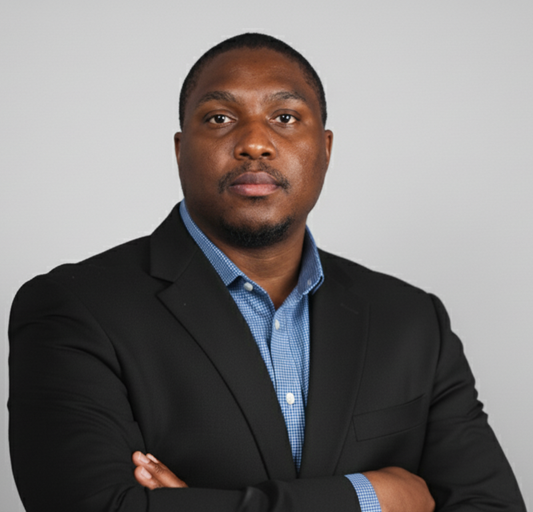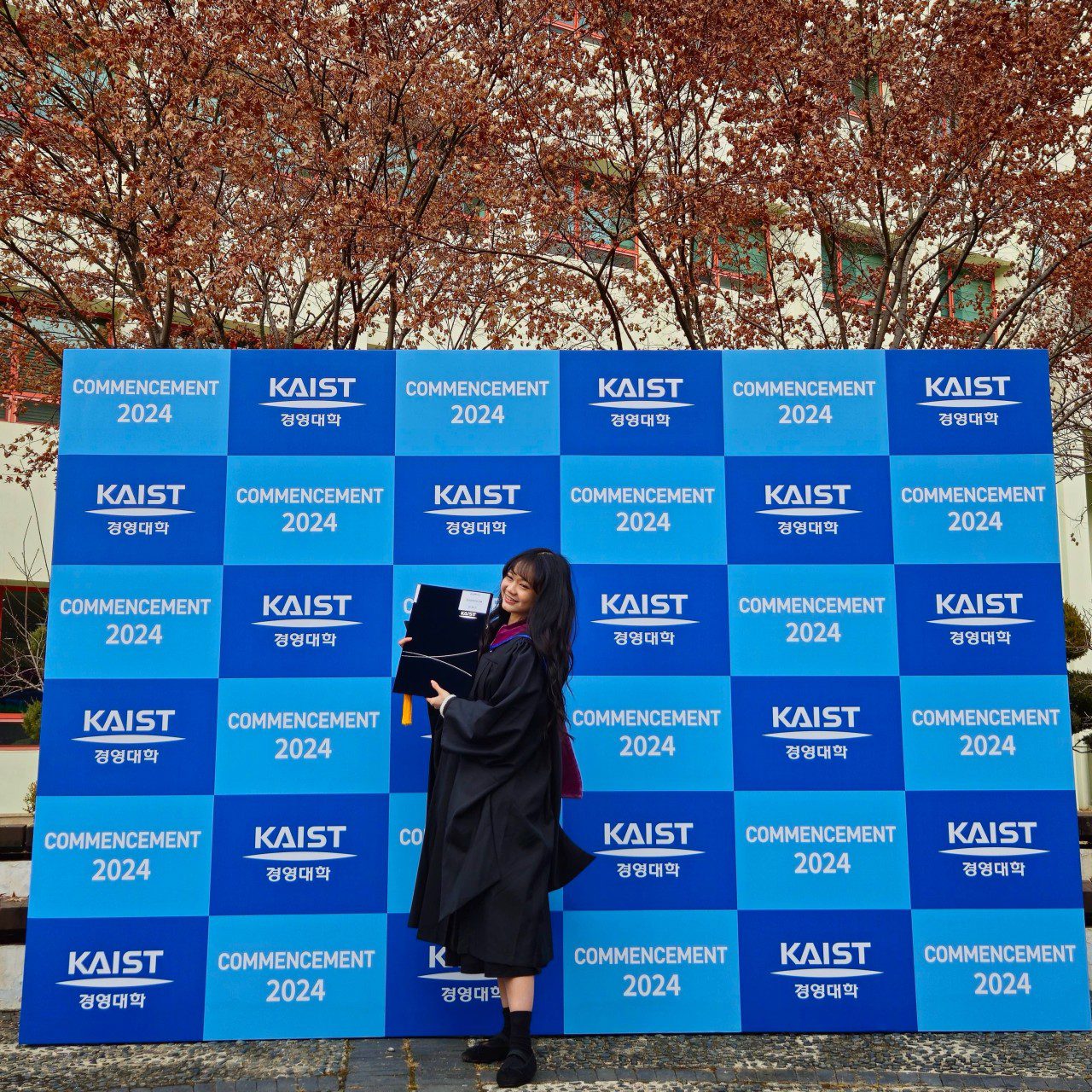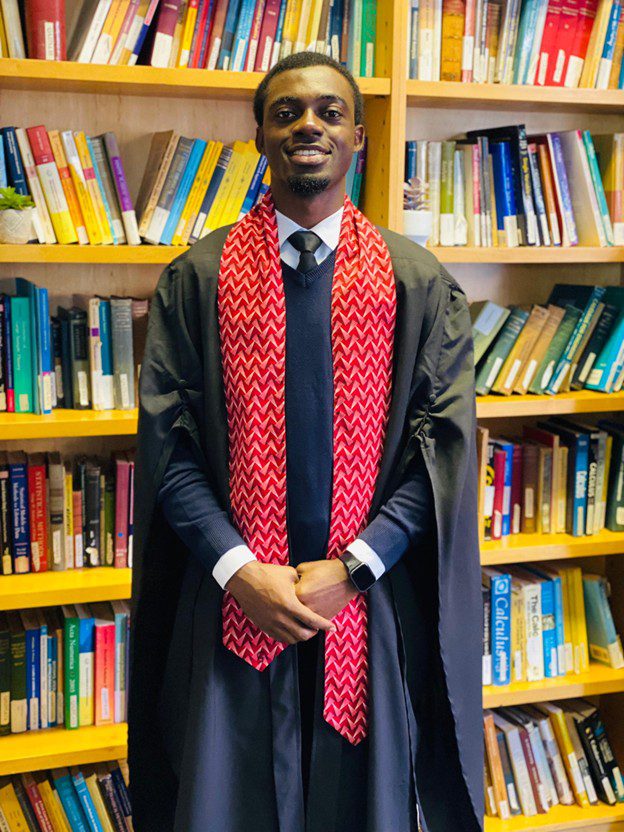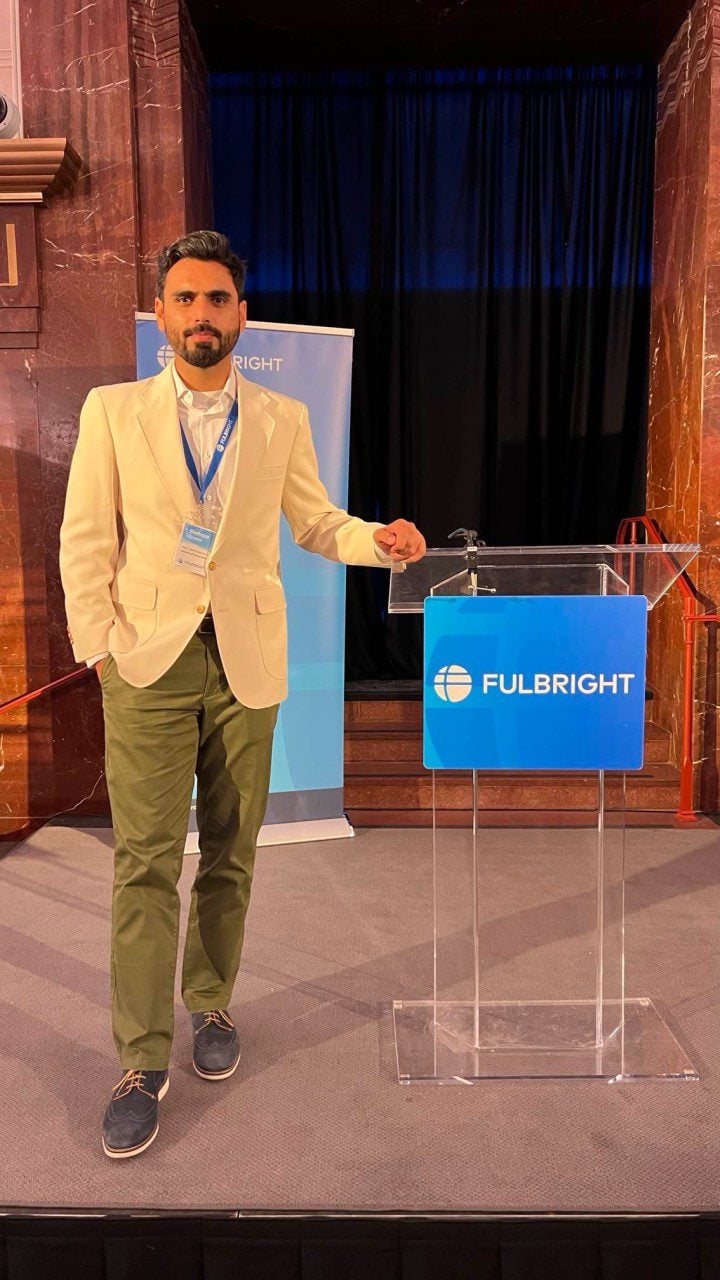MOE Taiwan Government Scholarship Recipient, Raphael from Nigeria, Now Pursuing a Fully Funded PhD in Medicinal Chemistry at the University of Michigan, USA
University: University of Michigan, Ann Arbor
Degree: PhD in Medicinal Chemistry
Previous Education: MS in Medicinal Chemistry – Taipei Medical University, Taiwan | Bachelor of Pharmacy – University of Nigeria
Scholarship: Graduate Assistantship – Fully Funded (Fellowships, Graduate Research/Teaching Assistantships with tuition, stipend, and benefits)
Other Offered Scholarships: Ministry of Education (MOE) Taiwan Government Scholarship – Fully Funded
Social Media
LinkedIn: linkedin.com/in/raphaelonuku/
Website: sites.google.com/umich.edu/raphaelonuku

The Journey
My name is Raphael Onuku, and I am from Nigeria. I am a Medicinal Chemistry PhD candidate at the University of Michigan in Ann Arbor. I studied Pharmacy at the University of Nigeria, then continued graduate training (MS degree) at Taipei Medical University in Taiwan after securing the Ministry of Education (MOE) Taiwan Government Scholarship. At graduation, the MOE, Taiwan, recognized me with its Outstanding Graduate Award, given to top performers among scholarship recipients globally.
I chose Medicinal Chemistry because I am driven to design and develop drugs and to understand, at the molecular level, how they work to treat diseases. As a matter of fact, I grew up in a community where infectious diseases such as malaria shape daily life, and that early exposure gave me a clear sense of purpose in science. So, my mission is to make small, active molecules (drugs) and to understand and communicate how they behave at the molecular level so they can mature into safe and effective medicines. Driven by this, I work across applied computational chemistry and peptide science to address urgent problems in cancer, antimicrobial resistance, and neglected tropical diseases.
Beyond the lab, I mentor students and aspiring scholars through the Raphael Onuku Foundation, a non-governmental organization I founded, sharing practical guidance on applications and international opportunities. My goal is to contribute to science that improves health while helping more young scholars access the training and support they need to succeed.
Ministry of Education (MOE) Taiwan Government Scholarship and Graduate Assistantship Details
As stated above, I completed my graduate study in Taiwan at Taipei Medical University with full funding from the Taiwan Ministry of Education Scholarship. The award covered approved tuition and miscellaneous fees up to NTD 40,000 per semester, and it provided a monthly stipend of NTD 20,000. For international readers, this was approximately 1,250 US dollars per semester for tuition support and approximately 625 US dollars per month in stipend value at the time.
My PhD in Medicinal Chemistry at the University of Michigan, Ann Arbor, is also fully funded. My support comes from a combination of competitive fellowships, Graduate Student Research Assistant appointments, and Graduate Student Instructor roles, which together provide tuition coverage, a stipend (varies each year), and standard graduate benefits.
Educational Background
I earned a GPA of 3.04 out of 4.0 during my undergraduate degree program in pharmacy from the University of Nigeria. For context, the Pharmacy program at my institution was classified as a professional program rather than by traditional class ranking. My 3.03 out of 4.0 GPA is from a credential evaluation I commissioned from WES for my own records, not for any application requirement. The degree and its curriculum gave me strong foundations in medicinal chemistry, pharmacology, and analytical methods. In my penultimate year, after a class introduction to computer-aided drug design by Prof. Ngozi Nwodo, I asked if I could join her lab as a voluntary student research assistant. That decision changed my trajectory and opened the door to applied computational chemistry and related skills, and my work with her both in my final year and after graduation (as a voluntary research assistant this time) led to early publications that later strengthened my case for scholarships and graduate opportunities.
I continued my training at Taipei Medical University in Taiwan after securing the MOE Taiwan Government Scholarship, where I refined two complementary paths: applied computational chemistry and organic synthesis. I completed my program with a 4.0 out of 4.0 GPA and used the classroom as a base to build practical skills at the bench, from planning synthetic routes to characterizing compounds and preparing data for presentation. I also grew as a leader. I served with the Taipei Medical University International Students Association and became president from 2022 to 2023, which taught me to organize teams, communicate across cultures, and support the academic success of peers.
During this period, I participated in the Falling Walls Lab Taipei competition organized by the Falling Walls Foundation and received an award for a three-minute pitch titled “Breaking the Wall of Multi-Drug Resistant Malaria.” The experience sharpened my ability to communicate science to a broad audience and to state clearly why a project matters. At graduation, I received the Ministry of Education Outstanding Graduate Award, which recognized my overall performance among scholarship recipients. After completing my degree, I undertook a competitive, paid two-month research internship at Academia Sinica through the Taiwan International Graduate Program International Internship Program. That intensive pre-doctoral experience exposed me to a high-standard research environment and reinforced the habit of pairing careful planning with disciplined execution.
Together, these experiences prepared me to apply for my PhD in medicinal chemistry. By the time I applied for my current PhD program, I was ready to contribute my quota to science and also learn more about how to design and discover drugs using computational, synthetic, and experimental tasks and to step into roles that require initiative, teamwork, and clear scientific communication.
How Did You Prepare to Apply to Taipei Medical University and the University of Michigan?
I began by organizing all core documents. I renewed my international passport, requested official transcripts from my university, and prepared a focused academic CV. I drafted my motivation letter and personal statements, tailoring the emphasis to each program’s research strengths. I also notified my professors well in advance that I would need recommendation letters, shared my proposed timelines, and explained my research interests so they could write targeted references. To stay on track, I maintained a simple spreadsheet that listed application portals, required documents, deadlines, and follow-up tasks.
I concentrated my master’s search on Asian universities, prioritizing places that either waived application fees for international students or did not charge fees. I selected target programs based on research fit, then read recent publications from potential supervisors to confirm alignment. I contacted a few laboratories with a concise email that included my CV and a short statement of research interests, and when possible, I reached out to current or former students to learn about lab culture and day-to-day expectations. For funding, I relied on official university websites to locate scholarship pages and eligibility notes. That is how I learned about the Taiwan Ministry of Education Scholarship, which requires applying through the Taiwan embassy or trade office in one’s country. It is important to have applied to programs in Taiwan before submitting the MOE application, since the form asks for the institutions and programs you have already applied to.
I did not take standardized tests. As a Nigerian student, English has always been my official language of communication and study. When institutions requested proof of English proficiency, I submitted a letter from my undergraduate university confirming English as the medium of instruction.
Using the same structured approach for my PhD applications, I focused on universities in the United States and Australia and ultimately secured four fully funded offers in the United States and one fully funded offer in Australia.
PhD in Cancer Chemical Biology (CCB) at the Moffit Cancer Center, University of South Florida. It’s fully-funded. The breakdown includes that all first-year students will receive an annual stipend of $33,000 and a $4,000 enrollment bonus on arrival. Second-year students will receive an annual stipend of $37,000. Whereas, third-year students (and beyond) will receive an annual stipend of $39,000 after they pass qualifying exams. Stipend levels are reviewed periodically, and market adjustments are made if warranted. Full tuition and fee payments and student health insurance are provided to all students. (https://www.moffitt.org/education/research-education-and-training/office-of-graduate-affairs/cancer-chemical-biology/).
PhD in Pharmaceutical Sciences (PSC), University of Maryland, Baltimore. Financial support, usually in the form of teaching and research assistantships, is provided for students accepted into the program. This support includes an annual stipend of $35,525, tuition remission, health insurance, and student fees. The total support is valued at $50,000 (https://www.pharmacy.umaryland.edu/academics/psc/).
PhD in Biological Chemistry, University of Utah. Their funding included an annual fellowship/living stipend support (about $38,110), $1,000 starting allocation, and a tuition Waiver (https://bioscience.utah.edu/biological-chemistry/).
PhD in Medicinal Chemistry, University of Michigan, Ann Arbor: Funding comes as a combination of fellowships, teaching, staff, or research assistantships, and/or training grants. Support includes payment of full tuition for fall and winter terms, a current annual stipend of $36,084, and health insurance, which includes medical and dental coverage. This brings the total award to at least $64,000 per year (https://pharmacy.umich.edu/pharmacy-programs/phd/medicinal-chemistry/).
The offer in Australia was from the Australian Institute for Bioengineering and Nanotechnology, University of Queensland. The funding is the Graduate School Scholarships (UQGSS) – includes the Research Training Program (RTP). The scholarship value includes a living stipend of $36,400 (Australian dollar) per annum tax tax-free, and tuition fee coverage (https://aibn.uq.edu.au/)
How Did You Prepare to Apply to the MOE Taiwan Government Scholarship?
I wrote a compelling personal statement that connected my background to clear research goals. I highlighted leadership, mentoring, and community engagement, and I quantified outcomes where possible. I aligned my proposal with the scholarship’s mission and used specific examples of resilience and impact. I asked some of my mentors to critique my essays for clarity and evidence of future potential.
How Was Your Experience at Taipei Medical University?
Taipei Medical University offered an encouraging environment, access to modern equipment, and my supervisor, Prof. Kunal Nepali, was very supportive, and he welcomed me into the lab with so much love. I gained hands-on skills and learned how to work productively across language and cultural differences. These experiences made the transition to my current program in the United States smooth and productive.
How Do You Rate Taipei Medical University Academically and Why?
I rate it highly for research rigor, publication culture, and its collaborative opportunities amongst different groups. The curriculum emphasized both fundamental concepts and practical skills, and the mentorship I received was responsive and constructive.
How Does the Institution Support International Students?
Orientation, visa guidance, and dedicated international student offices (Office of Global Engagement) were available at TMU. The International Center here at the University of Michigan plays the same role. Staff helped with housing, health insurance, and practical living questions.
Are Your Classes Conducted in English or Mandarin?
Yes. All graduate programs at Taipei Medical University are mostly in English. My graduate coursework and seminars were conducted in English.
What Advice Would You Give Those Looking to Apply for a Similar Scholarship?
Apply on time to universities. Define your research goals clearly and choose programs that match them. Build genuine relationships with mentors who can advocate for you. Write personal statements that are specific, honest, and focused on impact. Proofread everything and ask for feedback from people who will be candid. Apply widely and keep a simple tracking system for deadlines, documents, and follow-ups. Most of all, persistence matters more than perfection. Refuse to give up on yourself. Progress arrives in steady steps: one email sent, one paragraph improved, one meeting that opens a door. You do not need to be perfect to win a scholarship; you need to be consistent, coachable, and brave enough to keep going. If your goals are clear and your effort is steady, someone will read your file and say yes.
Want to submit your
scholarship journey?
Submit Your Story Here!
More Scholarship Recipients

My name is Vania Estrellita Soegiarto, and I am from Indonesia. I pursued a Finance MBA at KAIST Business School in South Ko .... Read more

Hello, I’m Toyeeb Olamilekan Abubakar from Nigeria. I earned a Bachelor of Science degree in Statistics from the Universit .... Read more

My name is Shehryar Jafar, and I’m from Karachi, Pakistan. I’m currently a PhD student in Electrical Engineering at the .... Read more

Leave A Comment